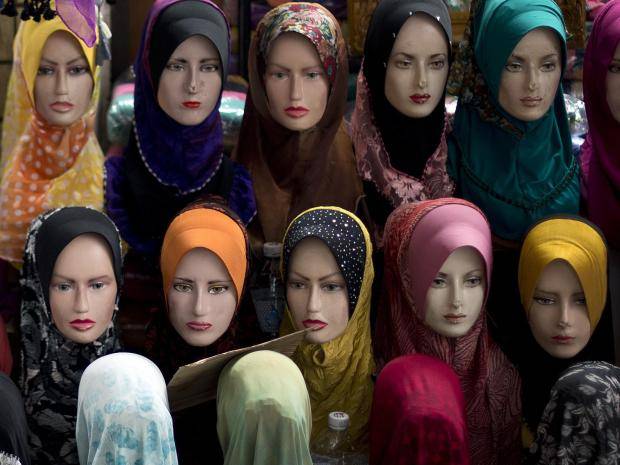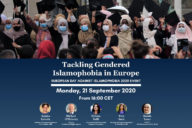Muslim women experience the same inequalities as other women in employment and in relation to verbal and physical violence, but they are compounded by additional factors of (perceived) religion and/or ethnicity. However, very little is done to collect comprehensive data and tackle this intersectional form of racism. This is the conclusion of the European Network Against Racism’s new report “Forgotten Women: the impact of Islamophobia on Muslim Women”, covering eight European countries: Belgium, Denmark, France, Germany, Italy, the Netherlands, Sweden and the United Kingdom.
Muslim women are subject to three types of penalties in employment: gender penalties, ethnic penalties and religious penalties. Discrimination in the labour market is often related to perceptions of “Muslimness”, and especially the clothing of Muslim women. For example, in the United Kingdom, 12.5% of Pakistani women are asked about marriage and family aspirations in job interviews whereas 3.3% of white women are asked such a question, i.e. nearly four times more. The headscarf is an additional obstacle in finding and keeping a job. In Germany, 18% of the companies invited applicants with German sounding names to an interview, while only 13 % invited applicants with Turkish sounding names. For applications from Muslim women with a headscarf in the CV photo, only 3 % of the companies invited them to an interview. In Belgium, 44% of employers agree that wearing a headscarf can negatively influence the selection of candidates.
Main targets
In most countries, Muslim women are more likely to be victims of hate crime and speech than Muslim men, especially if they wear a headscarf. Muslim women are targeted by threats and hate speech, violence and assault, and online hate. For example, in the Netherlands, over 90% of the victims of Islamophobic incidents reported to the organisation Meld Islamofobie in 2015 were Muslim women. In France, 81.5% of Islamophobic violence recorded by the Collective Against Islamophobia in France in 2014 targeted women, most of them wearing a visible religious symbol. Tell MAMA in the UK reports that 54% of the off-line victims of threats and verbal abuse were women. Verbal and physical violence often mix, as well as racist and sexist insults or gestures, and incidents mainly occur in public spaces.
The report shows that prejudices and stereotypical representations about Muslim women are spread by media and public discourse, including some politicians. This negative attention to Muslim women in media and political discourse also contributes to creating a fertile ground for discriminatory practices and violence on the ground.
“Muslim women are the targets of discrimination and violence because they are women and Muslim, but nothing is done to address the multiple discrimination they face”, said ENAR Chair Sarah Isal. “The European Union can’t afford to exclude and forget about Muslim women if it stands up for gender equality and the fight against racism. EU laws protecting against discrimination in the labour market and hate crime must effectively protect them.”
Source: Enar















No Comments